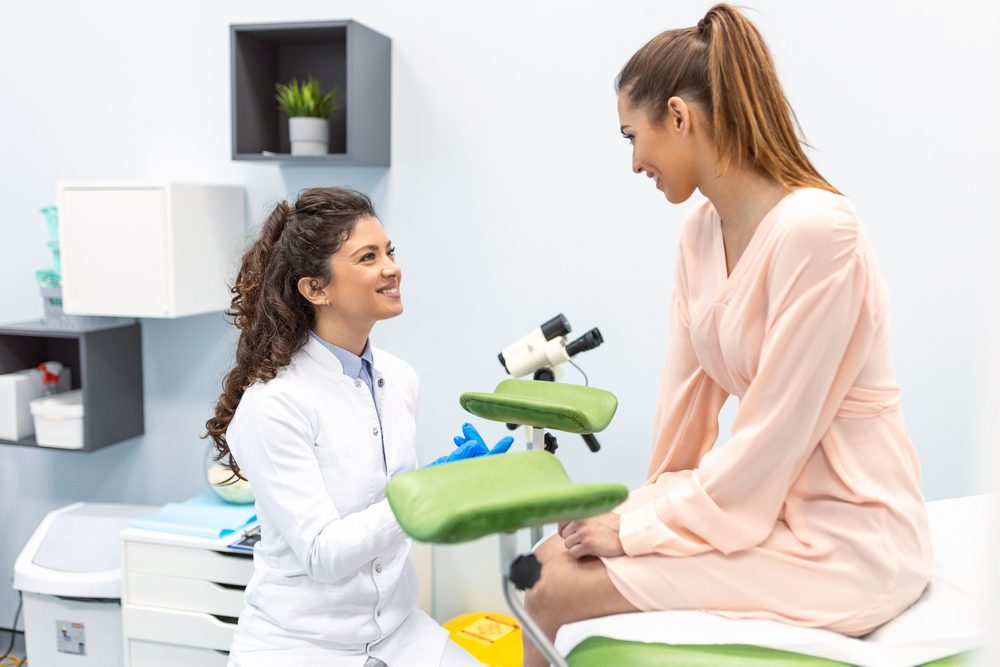Whether you’re preparing for your first visit or we’ve known you for years, our dedicated team is here to answer any questions you have.
What is a Pelvic Exam?
A pelvic exam is a physical examination of your pelvic organs. These include your external genitals, such as the vulva, and your internal organs, such as the vagina, cervix, and uterus. These examinations will last no longer than a few minutes as your provider checks for signs of cysts, irritation, abnormal discharge, enlarged ovaries, STIs, certain cancers, and other possible problems.
A pelvic exam is not a Pap test, it’s important to remember this.
How Often Should You Have a Pelvic Exam?
Recent research has not found evidence of the usefulness of annual pelvic exams for women who aren’t pregnant, experiencing symptoms, or at risk for gynecological conditions. The American College of Obstetricians and Gynecologists (ACOG) recommends women have pelvic exams only when they have symptoms or have a medical history that requires it.
What’s a Pap Test?
A Pap test is an internal test. Your provider will swab your cervix to test for pre-cancerous or cancerous cells. During a Pap test, your ObGyn provider will look at the vulva as well as the cervix with a speculum. Your internal organs will be checked and a small sample of cells will be taken to examine for abnormalities.
How Often Should You Have a Pap Test?
In the recent past, women were advised to have an annual Pap test, pelvic exam and breast exam. But now, annual Pap smears are no longer recommended. This is because we now better understand the way cervical cancer develops over time. Regardless of whether or not you are due for a Pap test, Women’s Health Arizona highly recommends annual well woman exams.
Women’s Health Arizona is aligned with ACOG guidelines for cervical cancer screening which includes Pap testing every three years for women ages 21 to 65. Women age 30 and older can get Pap testing every five years if the procedure is combined with testing for HPV. More specifically:
- Women age 21 to 29 should have a Pap test alone every 3 years. HPV testing alone can be considered for women who are 25 to 29, but Pap tests are preferred.
- Women age 30 to 65 have three options for testing. They can have both a Pap test and an HPV test every 5 years. They can have a Pap test alone every 3 years. Or they can have HPV testing alone every 5 years.
- After age 65, you can stop having cervical cancer screenings if you have never had abnormal cervical cells or cervical cancer, and you’ve had two or three negative screening tests in a row, depending on the type of test.
There are exceptions to these guidelines (for example, if you have cervical cancer or a weakened immune system) so be sure to speak to your provider for individualized recommendations.

What is the Difference Between a Pap Test and Pelvic Exam?
While a Pap test will show abnormal cells and signs of cervical cancer. A pelvic exam can check for skin cancers, diseases of the vulva, STDs and different forms of cancer.
What is an Annual Well Woman Visit?
Your annual well-woman visit is your opportunity to connect with your provider about your health. This visit is for you to take time to discuss any current concerns or questions you may have with your Women’s Health Arizona provider. A well-woman visit may include:
- An overall health assessment that includes a physical exam
- A pelvic exam
- A Pap test
- STI screenings and birth control options
- A clinical breast examination
- Menopause and midlife counseling
What is Gynecology?
Gynecology is medical care that deals with the functions and diseases specific to women and girls, especially those affecting the reproductive system.
When Should You First See a Gynecologist?
Girls should have their first gynecologic visit between the ages of 13 years and 15 years. The first visit can range from just a talk between you and your ObGyn provider to having certain testing or exams done.
What is Obstetrics?
Obstetrics is medical care during pregnancy, childbirth, and the postpartum period.
Read more:
If you would like to meet with a knowledgeable doctor, consider contacting Women’s Health Arizona. As Arizona’s largest ObGyn group, we’re trained and solely dedicated to delivering the best ObGyn experience in convenient and comfortable settings around Phoenix.

